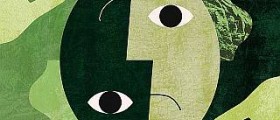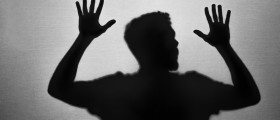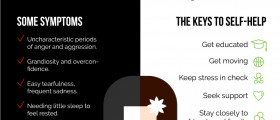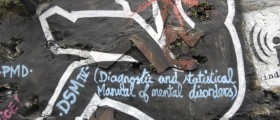
What Is Mood Disorder?
The term mood disorder refers to a number of mental illnesses marked by unusual mood changes. Mood disturbance in these disorders can range from mild to severe and include depression, hypomania, mania or combination of these.
Mood disorders are generally characterized by personality changes, violent behavior, appetite loss, fatigue, irregular sleep pattern, suicidal thoughts, anxiety, depression and poor concentration.
Mood disorders are mainly caused by imbalance in brain’s chemical activity although factors like financial difficulties, severe illness and emotional trauma can be triggers too.
Types of Mood DisordersMood disorders also known as affective disorders are classified into several types depending on their dominant features, duration and severity of symptoms. Two main types of mood disorders are unipolar disorder and bipolar disorder, both of which are types of depression.
Bipolar disorder also called manic depression manifests in extreme mood changes, from depression to episodes of mania, which occur at different times.
The unipolar mood disorder is further divided into major depression, dysthymia, seasonal affective disorder and postpartum depression.
Major DepressionThis type of mood disorder is featured by persistent depressed mood. Major depression is commonly accompanied with loss of interest in everyday activities, feelings of sadness, despair, helplessness and worthlessness. Significant weight loss or weight gain, changes in appetite, excessive sleeping or insomnia, trouble concentrating and indecisiveness are also common. Furthermore, fatigue, restlessness, decreased libido and suicidal thoughts are common in major depressive disorder.
Dysthymic Disorder
Dysthymia or dysthymic disorder is a chronic type of depression where the symptoms are present for about 2 years. However, symptoms of dysthymia are milder comparing to major depression. A person suffering from dysthymic disorder typically displays low energy levels, difficulty sleeping (insomnia or excessive sleeping), problems with concentration and decision making, changes in appetite, low self-esteem, feelings of guilt and hopelessness.
Seasonal Affective Disorder (SAD)
This type of the unipolar mood disorder is featured by symptoms of major depression that occur at the same time each year. The symptoms of seasonal affective disorder commonly appear during winter months.
Postpartum DisorderThis type of mood disorder represents major depressive episode that occurs after childbirth. The disorder, often referred to as “baby blues”, is marked by number of emotional, behavioral and physical changes that commonly start several days after delivery. Common signs of postpartum depression include crying, tiredness, trouble sleeping, feelings of inadequacy, sadness and guilt, headaches, lack of sex drive and anxiety. Sometimes a woman affected by postpartum depression exhibit ambivalence, indifference and even negativity toward her child.
Manic Depression
Manic depression is a type of bipolar mood disorder featured by periods of depression and mania. In some cases, affected person may only experience mania without episodes of depression. Manic episode is associated with extreme elevated mood that lasts for at least one week. The symptoms of mania include increased activity, restlessness, racing thoughts, pressured speech, euphoria, aggressive behavior, insomnia and increased sexual activity.
















-Signs,-Symptoms,-Treatment-And-Prevention_f_280x120.jpg)
Your thoughts on this
Loading...